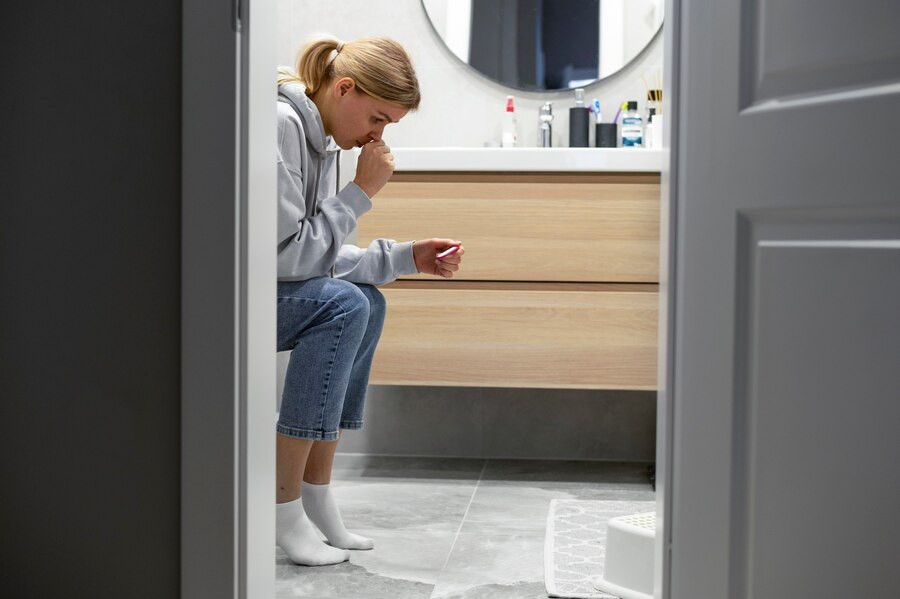Maintaining regular poop is crucial for your overall health. Defecation helps eliminate toxins and waste, and it plays a role in preventing digestive issues like constipation, bloating, and gas.
However, some individuals may frequently hold in their bowel movements due to being preoccupied with work, other activities, or limited access to restrooms. Be aware that this habit can pose health risks.
The Dangers of Holding in Bowel Movements Regularly
Occasionally delaying defecation may not lead to significant issues. However, making this a regular habit can result in various health complications, such as:
Constipation
One of the most common consequences of frequently holding in defecation is constipation. When stool remains in the colon for an extended period, the intestines absorb more water from it. This causes the stool to harden and become more difficult to pass.
Hemorrhoid Risk
Frequent retention of defecation increases pressure in the rectal and anal areas, potentially causing the blood vessels to swell.
The prolonged pressure from holding in a bowel movement can stretch and weaken the intestinal walls, increasing the likelihood of swelling in nearby blood vessels. Additionally, straining during defecation can worsen existing hemorrhoids.
Fecal Impaction
Fecal impaction is a serious condition that can arise from prolonged constipation. It occurs when stool becomes so large and hard that it gets stuck in the rectum, preventing normal passage.
Fecal impaction may cause abdominal pain, swelling, nausea, vomiting, minor bleeding, loss of appetite, and difficulty passing stool despite a strong urge. This condition is dangerous as it can lead to bowel obstruction, infections, intestinal rupture, and rectal bleeding.
Muscle and Nerve Damage
The normal defecation process involves the stretching of the rectal wall by stool, which sends signals to the brain, triggering the urge to pass stools. Repeatedly holding in defecation can interfere with this reflex, leading to difficulty in regulating bowel habits.
Over time, you might struggle to control the urge to defecate. In severe cases, muscle and nerve damage could result in rectal prolapse, where the rectum protrudes from the anus, or involuntary stool leakage.
Tips for Maintaining Smooth Defecation
To preserve digestive health and avoid these complications, it is important not to ignore the urge to defecate. Here are some tips for promoting smooth bowel movements:
- Eat high-fiber foods, such as fruits, vegetables, and whole grains, to soften stool and ease defecation.
- Drink plenty of water daily to prevent hardening of stools.
- Engage in regular physical activity to stimulate bowel movements.
- Establish a consistent bowel movement routine, such as going to the bathroom in the morning after waking up.
For some individuals, certain health conditions may make regular defecation more difficult. If you encounter such issues, don’t hesitate to consult a doctor. You can also seek medical advice through the Ai Care app, available for download on the App Store or Play Store.
Looking for more health information? Click here!
- dr Hanifa Rahma
Cleveland Clinic (2023). Changes in Bowel Habits. Available from: https://my.clevelandclinic.org/health/symptoms/changes-in-bowel-habits
Jessica Caporuscio, PharmD (2023). Why people should not hold in their poop. Available from: https://www.medicalnewstoday.com/articles/is-it-bad-to-hold-your-poop#complications
Amber J. Tresca (2024). How Bad Is It to Hold Your Poop?. Available from: https://www.verywellhealth.com/how-bad-is-it-to-hold-your-poop-4156577
John Hopkins Medicine. Constipation. Available from: https://www.hopkinsmedicine.org/health/conditions-and-diseases/constipation
Cleveland Clinic (2022). Fecal Impaction. Available from: https://my.clevelandclinic.org/health/diseases/23085-fecal-impaction
WebMD (2023). Hemorrhoids: Symptoms, Causes, and Treatment. Available from: https://www.webmd.com/digestive-disorders/understanding-hemorrhoids-basics
Cleveland Clinic (2023). Fecal (Bowel) Incontinence. Available from: https://my.clevelandclinic.org/health/diseases/14574-fecal-bowel-incontinence











